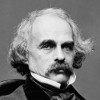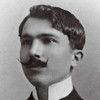“ Man springs out of nothing, crosses time, and disappears forever in the bosom of God; he is seen but for a moment, staggering on the verge of the two abysses, and there he is lost. If man were wholly ignorant of himself, he would have no poetry in him; for it is impossible to describe what the mind does not conceive. ”
Alexis de Tocqueville, Democracy in America (1840). copy citation
| Author | Alexis de Tocqueville |
|---|---|
| Source | Democracy in America |
| Topic | poetry God |
| Date | 1840 |
| Language | English |
| Reference | |
| Note | Translated by Henry Reeve |
| Weblink | http://www.gutenberg.org/files/816/816-h/816-h.htm |
Context
“I need not to ramble over earth and sky to discover a wondrous object woven of contrasts, of greatness and littleness infinite, of intense gloom and of amazing brightness—capable at once of exciting pity, admiration, terror, contempt. I find that object in myself. Man springs out of nothing, crosses time, and disappears forever in the bosom of God; he is seen but for a moment, staggering on the verge of the two abysses, and there he is lost. If man were wholly ignorant of himself, he would have no poetry in him; for it is impossible to describe what the mind does not conceive. If man clearly discerned his own nature, his imagination would remain idle, and would have nothing to add to the picture. But the nature of man is sufficiently disclosed for him to apprehend something of himself;”
source



